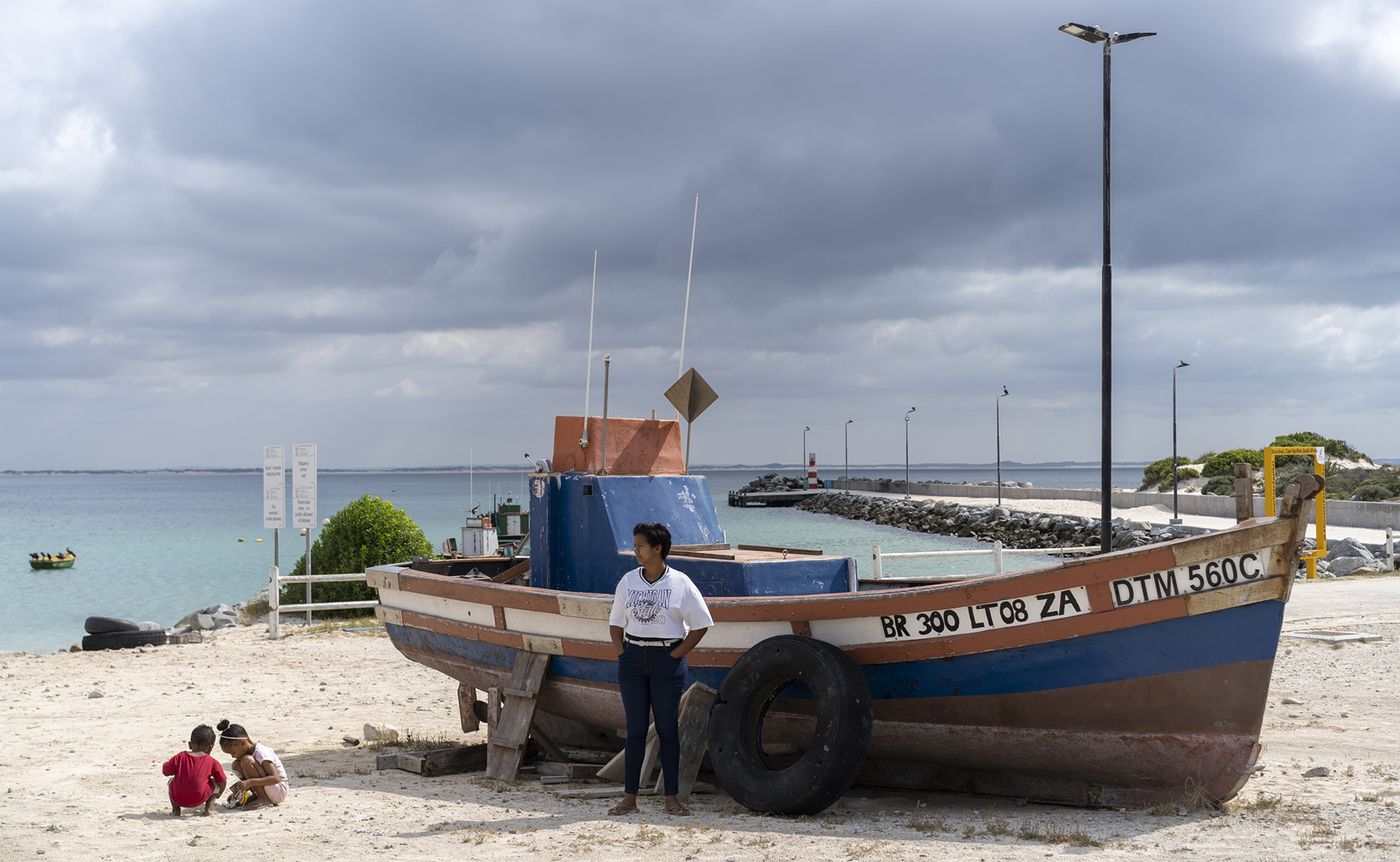At 5am in the cold, fishermen gathered at the Struisbaai harbour, less than 10km from the southernmost tip of Africa. In the water, lights created a green glow around moving boats as they went off to the Agulhas banks in search of yellowtail. The diesel engine in Martinus “Oom T” Newman’s traditional fishing boat, called a chukkie, chugged away as he skilfully moved the wooden plank attached to the rudder this way and that with his feet, navigating the oncoming swells as we headed out to sea, leaving the harbour lights behind.
“I have an immense sentimental attachment to the sea. My father and grandfather both [loved] the sea. Sea water ran through their veins. In 1975 I started going to sea. It’s the most amazing feeling, even though you don’t make millions of rands. It’s about the love and satisfaction that comes from fishing”, says Newman.
At the age of 65 Newman is still going strong. “Weltevrede,” the boat his father commissioned to be built and then piloted from Stomneusbaai harbour on the West Coast on a 400km journey to Struisbaai, now belongs to him. His father, now in his eighties, stopped fishing just over a year ago. Newman has since passed the fishing bug onto his youngest son, Jr, who skippers a newer ski-boat.
Emily, Newman’s wife, is also a fisher. She works at Abalobi, a company that supports fisher livelihoods through selling high-value catches to restaurants and private buyers, doing quality assurance. “If the fishers don’t go to sea, we can’t work”, she says.
As TotalEnergies was given authorisation to drill exploratory wells in Block 5/6/7 off the coast between Cape Point and Cape Agulhas, Newman says: “The changes in the fish patterns as a result of global warming is a big concern for us because our only source of income is the sea.”
Read more in Daily Maverick: Legal battle brews over TotalEnergies’ offshore oil and gas drilling in Western Cape
While all fishers are affected by the adverse weather, chukkie skippers are under further pressure because lately yellowtail has seemed to move further away from the Struisbaai harbour, making the journey untenable for the comparatively slow-moving boats.
However, the increasing pressure does little to dampen their relationship with the sea. Along with livelihoods, the sea is also the source of intergenerational identity for Newman and other Struisbaai fishers like him. Identities that they inherited from their parents and passed on to their children. DM
This work was supported by the Pulitzer Center. Daily Maverick will publish a series of four photo essays this week. This is part three.
Read Part 1: Coastal communities on the frontline of the climate crisis — Dwesa-Cwebe in Hobeni, Eastern Cape
Read Part 2: Coastal communities on the frontline of the climate crisis — Hondeklip Bay, Northern Cape
/file/dailymaverick/wp-content/uploads/2024/05/3_20240204_struisbaai_dm_bc_40648.jpg)
/file/dailymaverick/wp-content/uploads/2024/05/4_20240204_struisbaai_dm_bc_41001.jpg)
/file/dailymaverick/wp-content/uploads/2024/05/5_20240204_struisbaai_dm_bc_41339.jpg)
/file/dailymaverick/wp-content/uploads/2024/05/6_20240205_struisbaai_dm_bc_41427.jpg)
/file/dailymaverick/wp-content/uploads/2024/05/7_20240205_struisbaai_dm_bc_41579.jpg)
/file/dailymaverick/wp-content/uploads/2024/05/8_20240205_struisbaai_dm_bc_41747.jpg)
/file/dailymaverick/wp-content/uploads/2024/05/9_20240205_struisbaai_dm_bc_41619.jpg)
/file/dailymaverick/wp-content/uploads/2024/05/10_20240205_struisbaai_dm_bc_41848.jpg)
/file/dailymaverick/wp-content/uploads/2024/05/11_20240205_struisbaai_dm_bc_41846.jpg)
/file/dailymaverick/wp-content/uploads/2024/05/12_20240205_struisbaai_dm_bc_41804.jpg)




 Em Newman stands in front of her boat while her two young children play in the sand at the Struisbaai harbour, 6 February 2024. Em wants to be the first woman skipper in Struisbaai and wants to pilot a chukkie, just like her father does, and like her grandfather did. (Photo: Barry Christianson) FOR ONCE OFF USE ONLY
Em Newman stands in front of her boat while her two young children play in the sand at the Struisbaai harbour, 6 February 2024. Em wants to be the first woman skipper in Struisbaai and wants to pilot a chukkie, just like her father does, and like her grandfather did. (Photo: Barry Christianson) FOR ONCE OFF USE ONLY